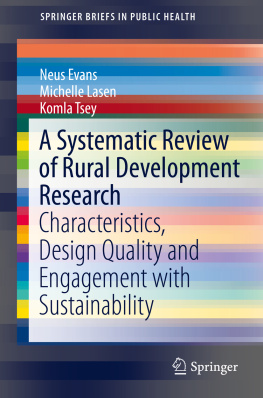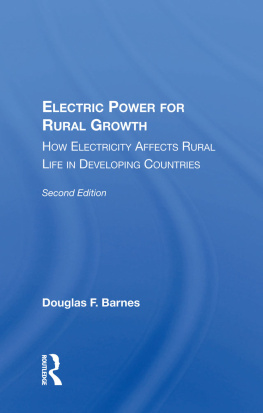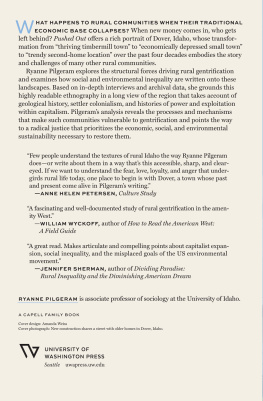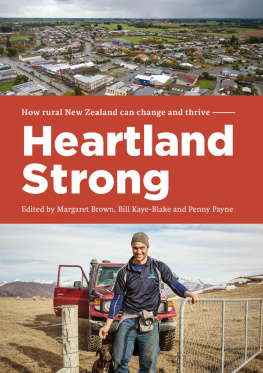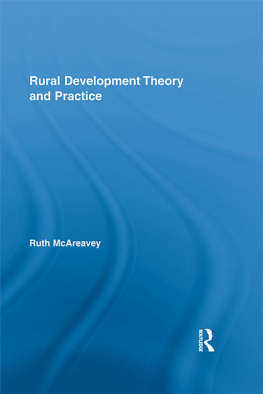Evans Neus - A systematic review of rural development research : characteristics, design quality and engagement with sustainability
Here you can read online Evans Neus - A systematic review of rural development research : characteristics, design quality and engagement with sustainability full text of the book (entire story) in english for free. Download pdf and epub, get meaning, cover and reviews about this ebook. year: 2015, publisher: Springer International Publishing, Cham, genre: Romance novel. Description of the work, (preface) as well as reviews are available. Best literature library LitArk.com created for fans of good reading and offers a wide selection of genres:
Romance novel
Science fiction
Adventure
Detective
Science
History
Home and family
Prose
Art
Politics
Computer
Non-fiction
Religion
Business
Children
Humor
Choose a favorite category and find really read worthwhile books. Enjoy immersion in the world of imagination, feel the emotions of the characters or learn something new for yourself, make an fascinating discovery.
- Book:A systematic review of rural development research : characteristics, design quality and engagement with sustainability
- Author:
- Publisher:Springer International Publishing, Cham
- Genre:
- Year:2015
- Rating:3 / 5
- Favourites:Add to favourites
- Your mark:
A systematic review of rural development research : characteristics, design quality and engagement with sustainability: summary, description and annotation
We offer to read an annotation, description, summary or preface (depends on what the author of the book "A systematic review of rural development research : characteristics, design quality and engagement with sustainability" wrote himself). If you haven't found the necessary information about the book — write in the comments, we will try to find it.
Rapid urbanisation, inequalities in income and service levels within and between communities, and population and economic decline are challenging the viability of rural communities worldwide. Achieving healthy and viable rural communities in the face of rapidly changing social, ecological and economic conditions is a declared global priority. As a result, governments all over the world, in both developed and developing countries, are now prioritizing rural and regional development through policies and programs aimed at enhancing the livelihoods of people living in rural regions.
In recognition of the important roles that research can play in rural development, a range of systematic literature reviews have rightly examined key priorities in rural development including education, gender, economic development (especially agriculture), and health and nutrition (see Department for International Development [DFID], 2011). However, none of these works has systematically examined the extent to which rural development as a field of research is progressing towards facilitating sustainable change.
This book evaluates trends in rural development research across the five continental regions of the world. Specifically, it assesses the total publication output relating to rural development, the types of publications, their quality and impact over the last three decades. Additionally, it evaluates the continental origins of the publications as well as the extent to which such publications engage with issues of sustainability. The aim is to determine whether the rural development field is growing in a manner that reflects research and policy priorities and broader social trends such as sustainability.
Development policy makers, practitioners, those teaching research methods and systematic literature reviews to undergraduate and graduate students, and researchers in general will find the book both topical and highly relevant.
Evans Neus: author's other books
Who wrote A systematic review of rural development research : characteristics, design quality and engagement with sustainability? Find out the surname, the name of the author of the book and a list of all author's works by series.

